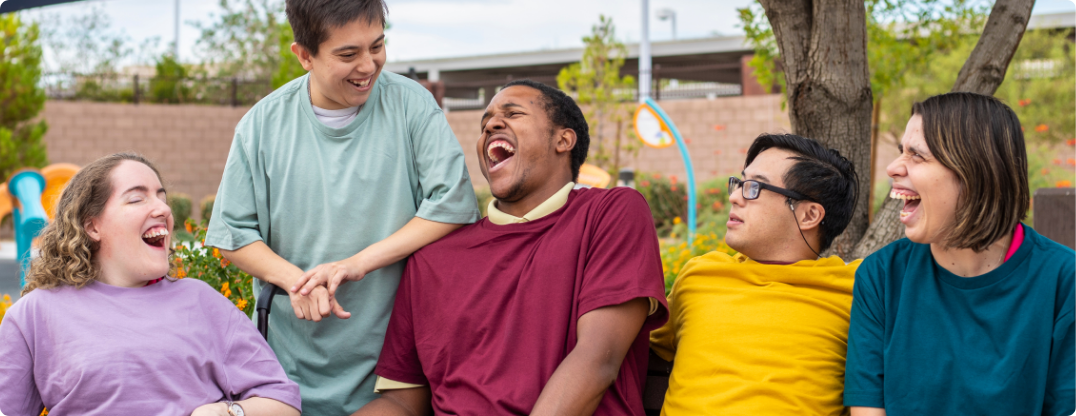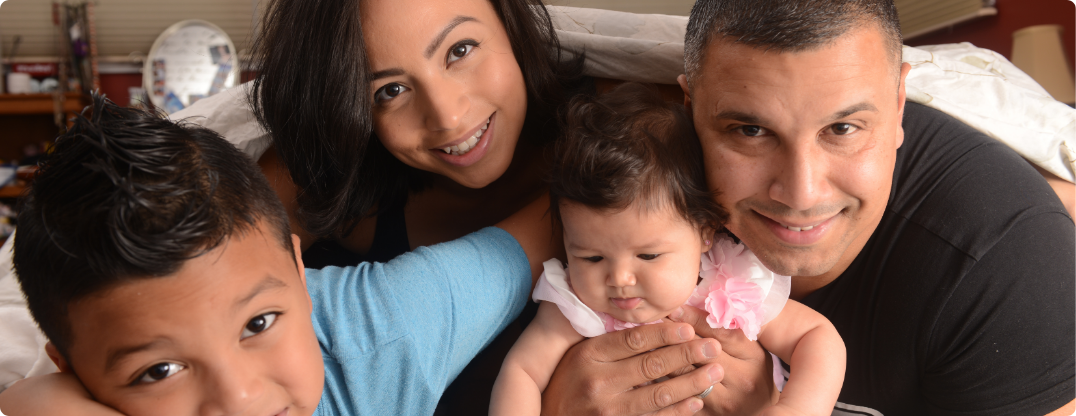Maybe you’ve heard the disability self-advocacy rights cry: “Nothing about us without us!”
Learning self-advocacy skills early and practicing them often helps to create a positive transition to adulthood outcome for people with disabilities. There is a lot to learn and a huge benefit related to self-advocacy by reviewing the topics explained below. Read on or click a topic below and jump to that information.
What is self-advocacy?
What is self-determination?
Disability Rights laws
Yo! Disabled and Proud!
CA Department of Rehabilitation Youth Leadership Forum
Person-Centered Plan
Regional Center Clients (includes Self Determination)

What is self-advocacy?
Self-advocacy can be many things to many people. A self-advocate:
- Speaks-up for themself, asks for what they need, and shares their thoughts and feelings with others
- Knows their rights and responsibilities
- Makes choices and decisions that affect their life
Self-advocacy is any time a person asks for what they need using polite, assertive communication. It can be:
- Requesting extra help from a teacher
- Explaining what you need to do a job well to a manager
- Sharing symptoms and feelings with a doctor
- Finding something in a store
- Asking for directions on a bus
- Agreeing (or disagreeing) about something with a partner or friend
- Speaking up anywhere about anything!
It’s helpful when people with disabilities – no matter what their age or circumstance – know what they need to be successful and can ask for it.
What is Self-Determination?
Self-determination is the concept that includes people choosing and setting their own goals, being involved in making their life decisions, self-advocating for their choices, and working to reach their goals.
It’s about people taking the action that is needed to get the things they want and need. Self-determination usually contributes to positive results in education, employment, independent living, relationships, and improved quality of life. Please find more information from Pacer’s National Parent Center on Transition and Employment on their self-determination resource page.
Disability Rights Laws
Learning about disability rights is an important step toward becoming a successful self-advocate.
What laws protect people with disabilities? What rights do people with disabilities have at school, at work, and beyond?
- The Americans with Disabilities Act (ADA) is the largest of the federal laws that protect adults with disabilities, including a variety of rights in a variety of areas. ADA is the law that protects employment rights and guides access rights for people with disabilities
- The Individuals with Disabilities Education Act (IDEA) protects students during their school years
In California, there are additional laws that protect the rights of people with disabilities. The California Department of Fair Employment and Housing lists the three main ones to be aware of. The goal of these laws is to ensure equal access for all people with disabilities. Need more information about disability rights, and how they protect people with disabilities? Disability Rights California is a great resource to explore and is filled with resources on many topics regarding disability rights.
Yo! Disabled and Proud!
Yo! Disabled and Proud! is a program available in California specifically for youth with disabilities. It connects, organizes, and educates youth with disabilities on their rights. It is offered through The CA Foundation of Independent Living Centers, another valuable resource. Check with your local Independent Living Center to see what programs they offer to build self-advocacy skills.
CA Department of Rehabilitation’s Youth Leadership Forum for Students with Disabilities (YLF)
CA Department of Rehabilitation’s Youth Leadership Forum for Students with Disabilities (YLF) is a week-long self-advocacy and leadership development program for high school students with disabilities. It helps build communication, organizational and leadership skills.
Person-Centered Plan
A person-centered plan can be a way to help identify a person’s strengths, transition to adulthood and other goals, medical needs, home, and community-based services, and desired outcomes. It also can help define that person’s circle of support. The Family Care Notebook can be a good start to the person-centered plan. For more about person-centered planning:
- Pacer’s National Parent Center on Transition and Employment
- National Center on Secondary Education and Transition
- The Learning Community
Regional Center Clients
There are some programs and/or service agencies that are only available to Regional Center clients. They are listed below, click to view more information about each:
- Self-Determination Program: This program provides individuals and their families more freedom, control, and responsibility in choosing services and supports to help them meet objectives in their Individual Program Plan.
- The State Council on Developmental Disabilities (SCDD): Through advocacy, capacity building, and systemic change, SCDD works to achieve a consumer and family-based system of individualized services, supports, and other assistance.
- Disability Voices United, a state-wide advocacy organization, is directed by and for individuals with developmental disabilities and their families; it’s a great place to learn advocacy and self-advocacy skills.









